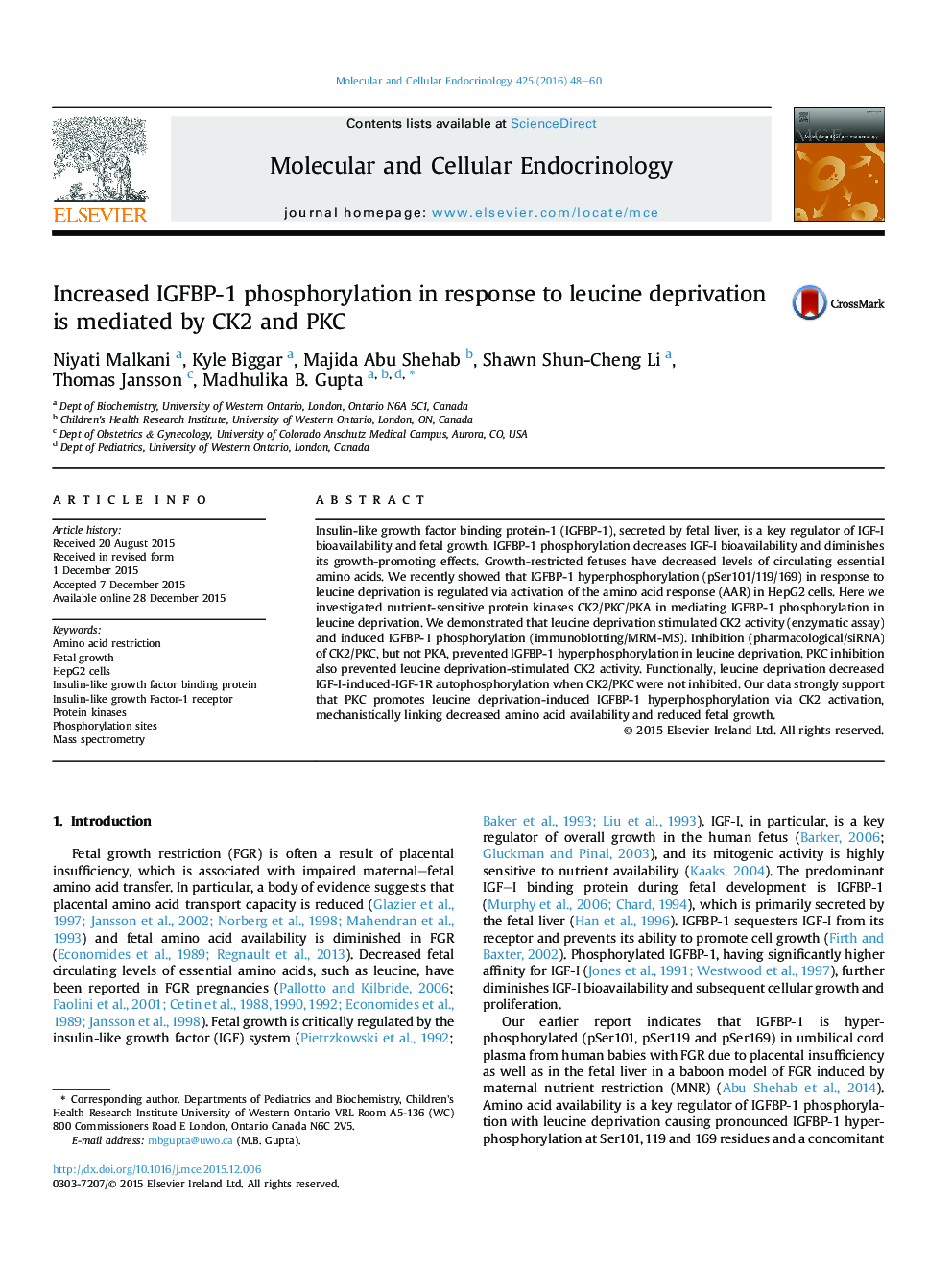| Article ID | Journal | Published Year | Pages | File Type |
|---|---|---|---|---|
| 2195625 | Molecular and Cellular Endocrinology | 2016 | 13 Pages |
•A novel mechanistic link between reduced amino acid availability and restricted fetal growth in FGR.•PKC promotes both CK2 activity and IGFBP-1 phosphorylation in leucine deprivation.•CK2/PKC regulate IGF-I-bioactivity in a common mechanism in leucine deprivation by reducing IGF-I action.
Insulin-like growth factor binding protein-1 (IGFBP-1), secreted by fetal liver, is a key regulator of IGF-I bioavailability and fetal growth. IGFBP-1 phosphorylation decreases IGF-I bioavailability and diminishes its growth-promoting effects. Growth-restricted fetuses have decreased levels of circulating essential amino acids. We recently showed that IGFBP-1 hyperphosphorylation (pSer101/119/169) in response to leucine deprivation is regulated via activation of the amino acid response (AAR) in HepG2 cells. Here we investigated nutrient-sensitive protein kinases CK2/PKC/PKA in mediating IGFBP-1 phosphorylation in leucine deprivation. We demonstrated that leucine deprivation stimulated CK2 activity (enzymatic assay) and induced IGFBP-1 phosphorylation (immunoblotting/MRM-MS). Inhibition (pharmacological/siRNA) of CK2/PKC, but not PKA, prevented IGFBP-1 hyperphosphorylation in leucine deprivation. PKC inhibition also prevented leucine deprivation-stimulated CK2 activity. Functionally, leucine deprivation decreased IGF-I-induced-IGF-1R autophosphorylation when CK2/PKC were not inhibited. Our data strongly support that PKC promotes leucine deprivation-induced IGFBP-1 hyperphosphorylation via CK2 activation, mechanistically linking decreased amino acid availability and reduced fetal growth.
